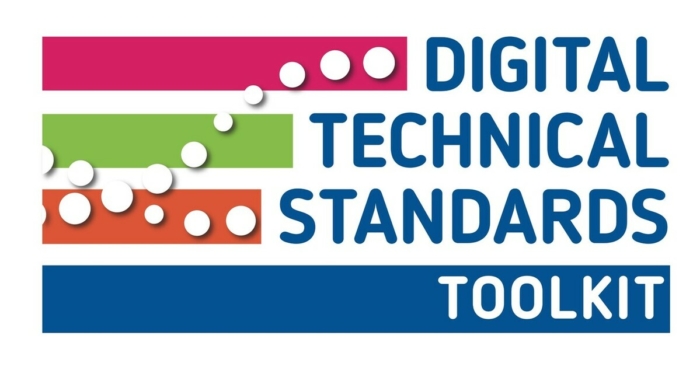 Theme: Collaborating with industry for teaching and learning
Theme: Collaborating with industry for teaching and learning
Authors: Ian Hobson (Senior Lecturer and Academic Mentor for Engineering Leadership Management at Swansea University and former Manufacturing Director at Tata Steel) and Dr Vasilios Samaras (Senior Lecturer and Programme Director for Engineering Leadership Management at Swansea University)
Keywords: Academia, Industry
Abstract: Throughout the MSc Engineering Leadership Management program, the students at Swansea University develop theoretical knowledge and capability around leadership in organisations. Working alongside our industry partner Tata Steel, they deploy this knowledge to help understand and provide potential solutions to specific organisational issues that are current and of strategic importance to the business. The output of this work is presented to the Tata Steel board of directors along with a detailed report.
Aims of the program
In today’s world, our responsibility as academics is to ensure that we provide an enabling learning environment for our students and deliver a first-class education to them. This has been our mantra for many years. But what about our responsibility to the employing organisations? It’s all well and good providing well educated graduates but if they are not aligned to the requirements of those organisations then we are missing the point. This may be an extreme scenario, but there is a real danger that as academics we can lose touch with the needs of those organisations and as time moves on the gap between what they want and what we deliver widens.
In today’s world this relationship with the employment market and understanding the requirement of it is essential. We need to be agile in our approach to meet those requirements and deliver quality employees to the market.
How did we set this collaborative approach?
In reality the only way to do this is by adopting a collaborative approach to our program designs. Our aim with the MSc Engineering Leadership Management (ELM) at Swansea University is to ensure that we collaborate fully with the employment market by integrating industry professionals into our program design and delivery processes. In this way we learn to understand the challenges that organisations face and how they need strength in the organisation to meet those challenges. This of course not an easy task to accomplish.
In our experience professionals within organisations are often overrun with workload and trying to manage the challenges that they face. A university knocking the door with an offer of collaboration is not always top of their priority list, so how do we make this happen? You need to have a balance of academics and experienced industry leaders working within the program who understand the pressures that business faces. They also often have networks within the external market who are willing to support such programs as the ELM. The power of collaboration is often overlooked. It’s often a piece of research, dealing with a specific technical issue, it is rarely a continuum of organisational alignment. If the collaboration is designed for the long-term benefit of improving employability, then organisations will see this as a way to help solve the increasing challenge of finding “good” employees in a market that is tightening. So overall this becomes a win-win situation.
How was the need for the program identified?
Our program was developed following feedback to the university from the market that graduates were joining organisations with good academic qualifications but lacked an understanding of how organisations work. More importantly how to integrate into the organisation and develop their competencies. This did come with time and support, but the graduates fell behind the expected development curve and needed significant support to meet their aspirations.
Swansea University developed the ELM to provide education on organisations and how they work and develop the skills that are required to operate in them as an employee. These tend to be the softer skills, but also developing the student’s competence in using them. Examples include working as teams and providing honest feedback via 1-1s and 360s and team reviews.
In our experience the ability to challenge in a constructive way is a competency that the students don’t possess. All our work is anchored in theory which provides reference for the content. The assignments that we set involve our industry partners and provide potential solutions to real issues that organisations face. The outcome of their projects is presented to senior management within the host organisation. This is often the high point of the year for the students. This way the students get exposure to the organisations which extends their comfort zones preparing them for the future challenges.
What are the program outcomes?
September 2022 will be our fifth year. The program is accredited by the Institution of Engineering and Technology (IET). Our numbers have increased year on year, and we are running cohorts of up to 20 students. It’s a mix of UK and international students. The program requires collaboration between the university faculties which has brought significant benefits and provided many learning opportunities. The collaboration between the engineering and business schools has made us realise that working together we provide a rounded program that is broad in content, but also deep in areas that are identified as specific learning objectives.
The feedback from the University is that students on the ELM program perform well and they have a more mature approach to learning and have confidence in themselves and are proactive in lectures. From our industry partners they feed back that the ELM students are ahead of the curve and are promoted into positions ahead of their peers.
What have we learned from the program?
As lecturers, over the years it has become very clear that the content that we deliver must change year on year. We cannot deliver the same content as it quickly becomes out of date. The theory changes very little, but the application changes significantly, in line with the general market challenges. It is almost impossible to predict and if we sit back and look at the past 4 years this pattern is clear. We also need to refresh our knowledge and we have as much to learn from our students as they do from us. We treat them as equals and have a very good learning relationships and have open and honest debates. We always build feedback into our programs and discus how we can improve the content and delivery of the program. Without exception feedback from a year’s cohort will modify the program for the following year.
Looking ahead
We are being approached by organisations interested in the University delivering a similar program to their future leaders on a part time basis which is something we are considering. We do however recognise that this program is successful because of the experience and knowledge of the lecturers and the ability to work with small cohorts which enables a tailored approach to the program content.
We believe that collaboration with the market keeps the ELM aligned with its requirements. Equally as importantly is the collaboration with our students. They are the leaders of the future and if the market loses sight of the expectations of these future leaders, then they will fail.
The ELM not only aligns its programs with the market, it keeps the market aligned with future leaders.
Any views, thoughts, and opinions expressed herein are solely that of the author(s) and do not necessarily reflect the views, opinions, policies, or position of the Engineering Professors’ Council or the Toolkit sponsors and supporters.




